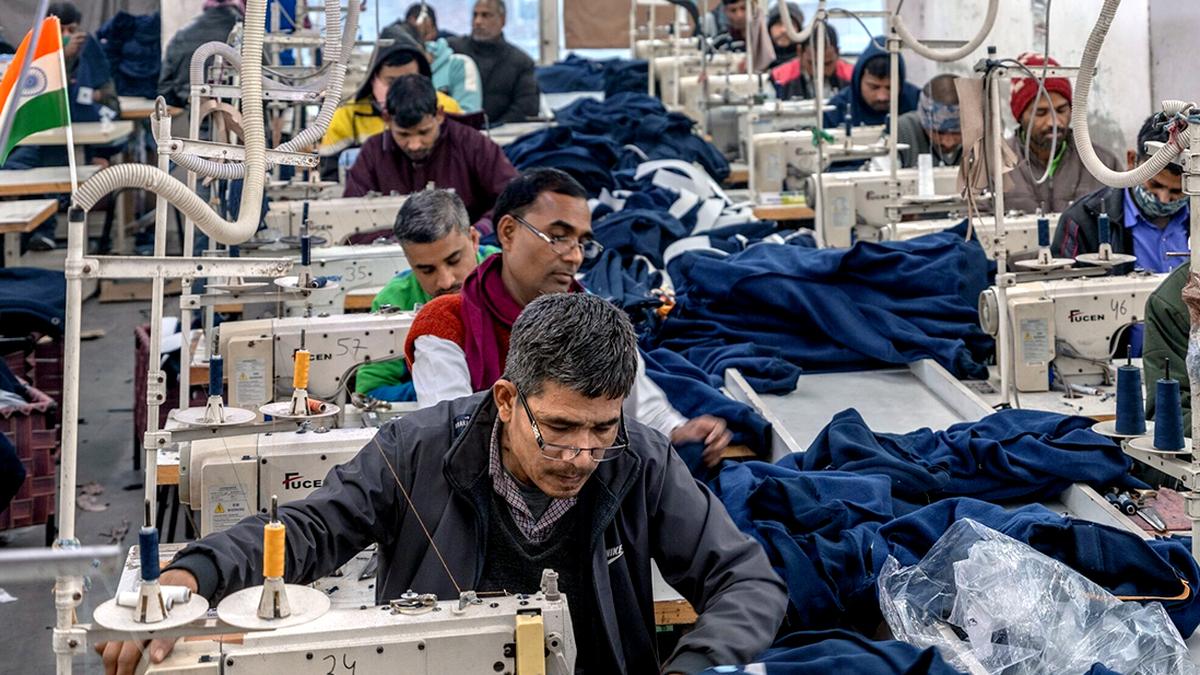Trade union leaders and experts have criticised the Delhi government’s move to amend at least two labour laws as part of its ‘Ease of Doing Business’ policy, saying the amendments will strip lakhs of workers in the city of several rights.
The first pertains to changing the applicability of the Delhi Shops and Establishments Act, 1954, to establishments with 10 or more employees. Currently, the Act, which includes several safeguards for employees, such as leaves, weekly holidays, and a month’s notice for dismissal, is applicable even to establishments with one employee.
The government is also planning to amend the Industrial Disputes Act, 1947, which protects workers in cases of lay-offs and closure of units employing 100 or more workers, by raising the minimum threshold of employees to 300.
Directions were issued to senior officials at a review meeting on June 30, chaired by Lieutenant-Governor V.K. Saxena and attended by Chief Minister Rekha Gupta, to make these changes, said a source. However, the government is yet to release any official statement on the matter.
‘No protection’
Anurag Saxena, CITU general secretary (Delhi), said introducing a threshold in the law will leave employees working in smaller establishments without any protection.
“Right now, if a person working at a small bakery or garment shop is fired illegally, he or she can file a complaint under the Act. Once the minimum threshold is increased to 10, workers at thousands of establishments with fewer than 10 employees will be placed outside the ambit of the law and left without any protection,” he said.
A senior Delhi government official said once the four Labour Codes, which were passed in Parliament in 2019 and 2020, are implemented, workers in smaller establishments will be provided with “some level of protection”.
However, Mr. Saxena said, “The labour codes could provide protection to employees in case of wages, but there is no safeguard for workers at a small establishment who are fired illegally.”
Concurrent List
The government is also looking to make changes to the Industrial Disputes Act, 1947, which applies to commercial units across the country, as labour is part of the Concurrent List, which includes subjects over which the Union and State governments share legislative responsibilities.
Currently, the Act provides protection to workers in the event of retrenchment and closure of firms employing 100 workers or more, as prior permission is required from the government or notice is to be given for such actions.
The Delhi government plans to amend the Act to cover only establishments employing 300 or more workers.
Professor Surajit Mazumdar at the Centre for Economic Studies and Planning, Jawaharlal Nehru University, said an employee’s rights do not depend on the size of the establishment.
“As things stand, many labour laws meant to protect employees are not enforced properly. And now if you remove the workers from the ambit of the law itself, the workers won’t be able to even fight for their rights,” he said.
The threshold in the Industrial Disputes Act, 1947 has already been raised to 300 by the Bharatiya Janata Party governments in Gujarat (2021) and Assam (2018).
The same change has also been proposed in the Industrial Relations Code, 2020, which is part of the four labour Codes, which have not been implemented amid resistance from labour unions across the country.
Mr. Mazumdar said raising the threshold to 300 would be a way of introducing the labour Codes “through the back door”.
Gujarat had also amended the Gujarat Shops and Establishments (Regulation of Employment and Conditions of Service) Act, 2019 (the equivalent of the Delhi Shops and Establishments Act, 1954) six years ago to cover units employing only 10 or more workers.
“The total number of employees in establishments with less than 10 workers in Delhi, who will be affected by the change in law, will be in the range of 7 to 20 lakh and the actual figure will be closer to 15 lakh,” said Mr. Mazumdar. He used the data from the Economic Census, 2013-14 and Delhi Economic Survey 2023-24 to arrive at the conclusion.
Brijesh Goyal, chairman of Chamber of Trade & Industry, said the figure will be around 18-20 lakh workers, and Sucheta De, AICCTU national vice president, said the figure will be around 15-17 lakh workers.
“The entire practice is to keep most workers outside the scope of any legal protections,” Ms. De said.
When reached out, the CM’s office did not offer any comment.
Published – July 28, 2025 01:11 am IST






















